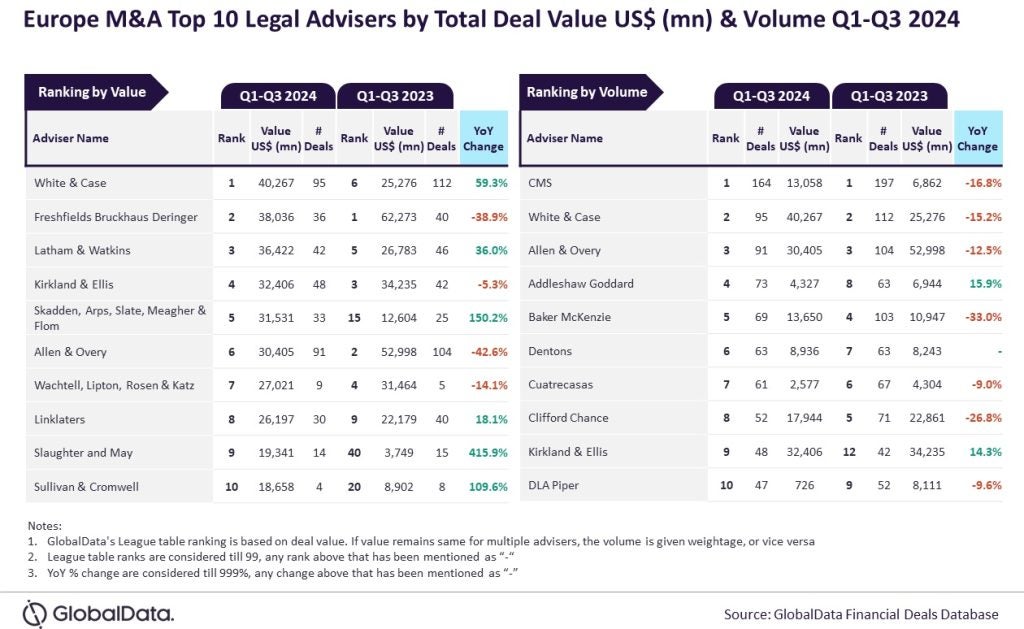
The UK remains the fifth largest wealth market in terms of affluent individuals’ onshore liquid assets despite instability following Brexit and the pandemic, according to a new report.
GlobalData’s UK Wealth Management: Market Sizing and Opportunities to 2027 report found that the number of High-Net-Worth Individuals (HNWIs) – over £1m ($1.2m) – grew by 7.9% in 2020 and by 5.2% in 2021.
However, Russia’s invasion of Ukraine and the cost of living hindered the growth of HNWIs, with only a 0.3% rise in 2022. GlobalData forecasts growth of this demographic to remain modest, between the 1 and 2% mark until 2027 due to the cost-of-living crisis and recession.
GlobalData Associate Analyst Phoebe Hodgson commented: “The UK’s liquid assets are set to continue to grow into 2027, competing well with the US, China, Germany, Japan and India. Considering Japan’s wealth market decline, I would say the UK is still set to remain in the top five wealth markets. However, the Russia-Ukraine conflict should be taken into consideration, considering its unpredictability.”
The report also provided insight into the distribution of affluent individuals’ liquid assets. Affluent individuals, which include HNWIs and mass affluents (£50,000-£1m), hold 88.7% of the UK’s onshore liquid assets in 2022. Cash and direct equity investments are the most popular asset classes for the UK’s HNWIs, with 22.8% being kept in cash and 20.7% in equities.
The recent economic climate with high inflation has resulted in a low-risk strategy from investors, although they persist in holding an above-average portion of their wealth in equities despite poor stock market performance. These volatile market conditions are pushing demand for diversified fund product solutions as well as greater offshore investments.
How well do you really know your competitors?
Access the most comprehensive Company Profiles on the market, powered by GlobalData. Save hours of research. Gain competitive edge.

Thank you!
Your download email will arrive shortly
Not ready to buy yet? Download a free sample
We are confident about the unique quality of our Company Profiles. However, we want you to make the most beneficial decision for your business, so we offer a free sample that you can download by submitting the below form
By GlobalDataAccording to the report, in 2022, “the average UK HNW investor offshored 49% of their portfolio” with this decision being primarily driven by ‘tax efficiency’, while 30% of mass affluent individuals held a portion of their portfolio offshore and 22% of emerging affluent. These lower wealth categories cited more varied reasons for offshore holdings, with an expectation of better returns, previously living in another country and the UK’s political and economic instability being among the main reasons. This growing trend of increased wealth offshoring is a threat to UK wealth management services with no offshore capabilities.
In terms of the equity market, Brexit continues to suppress the value achieved, with no considerable growth since 2017. Currently, the two sectors dominating the weighting of the FTSE 100 are energy and healthcare with 12.81% and 12.89%, respectively, although healthcare may become a less alluring investment as the memories of the recent pandemic fade.
Recently, RBC Wealth Management has upgraded UK equities, signalling a more optimistic outlook on the market going forward. Thomas MGarrity, head of equities for RBC Wealth, commented: “UK equity performance has been disappointing this year … Prospects may be improving. Investors are hoping that the Bank of England’s recent decision to pause rate hikes could be a positive catalyst”.
Concerning the rising oil prices and the FTS100, McGarrity suggested this could be good for the equity market:” Moreover, the UK’s blue-chip equity index, the FTSE 100, typically outperforms when value stocks outperform growth stocks given the index’s bias to “old economy” industries such as energy, mining, and banks. This dynamic has been supportive recently, with rising oil prices helping to buoy the Energy sector. As a result, we are upgrading UK equities to market weight from underweight.”
GlobalData’s Hodgson added: “Optimism still remains in the UK equity market. Equities are expected to continue to grow until 2027.”






